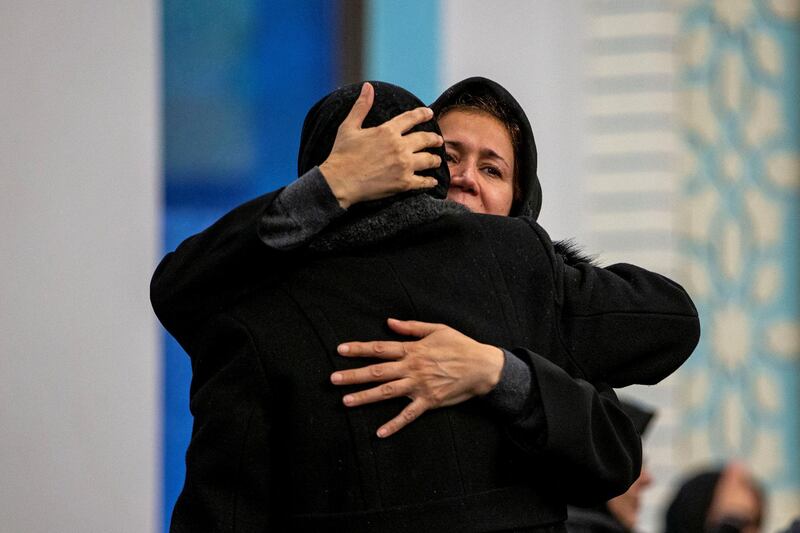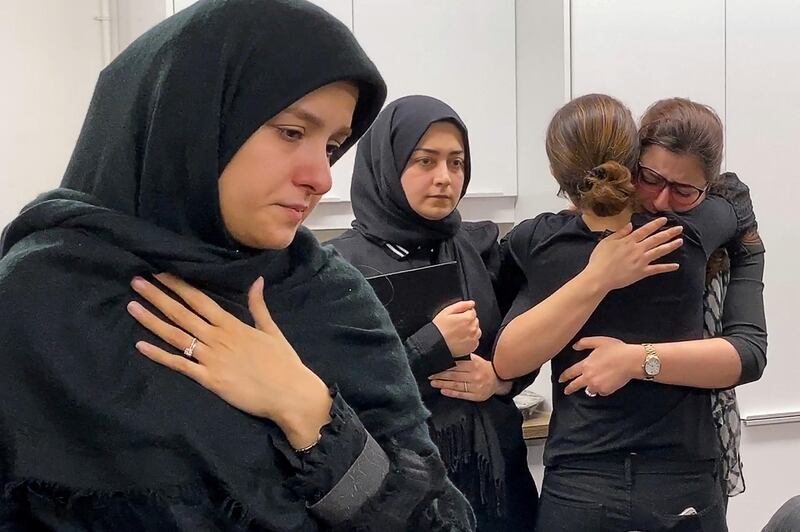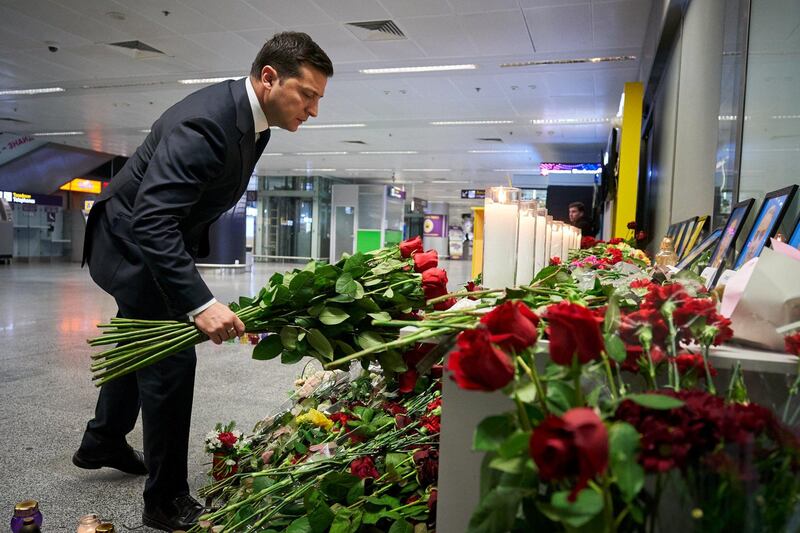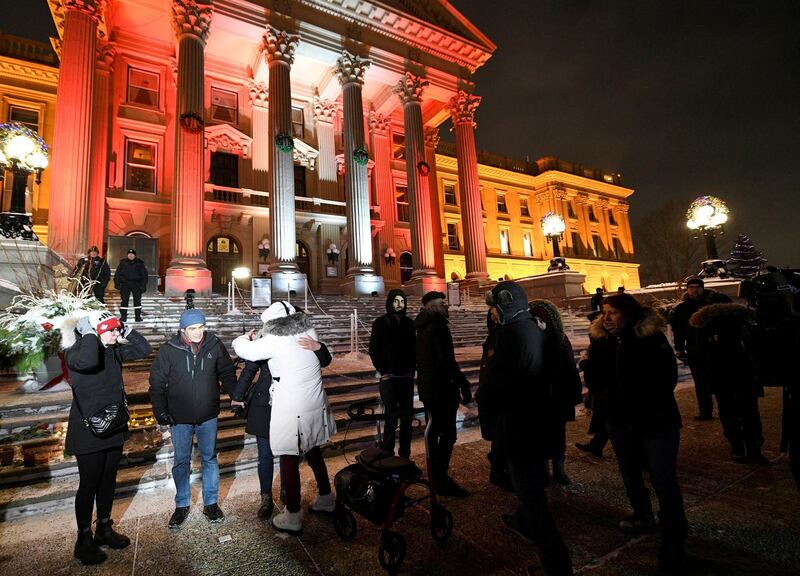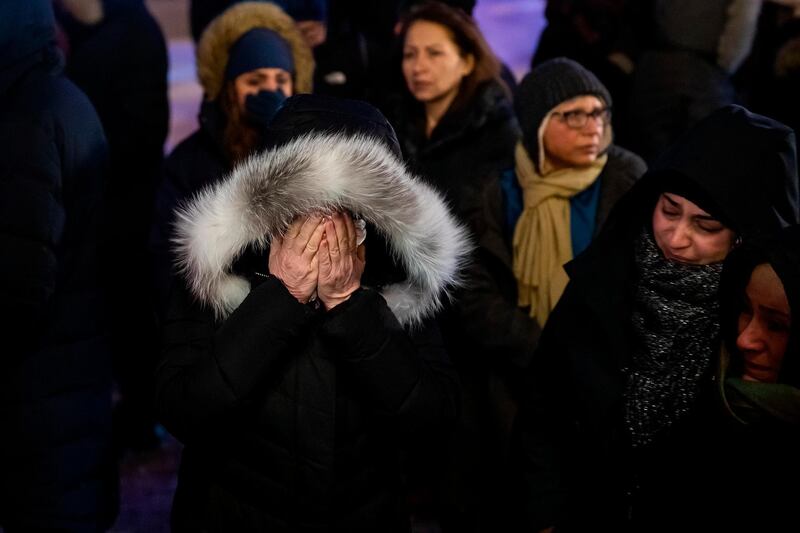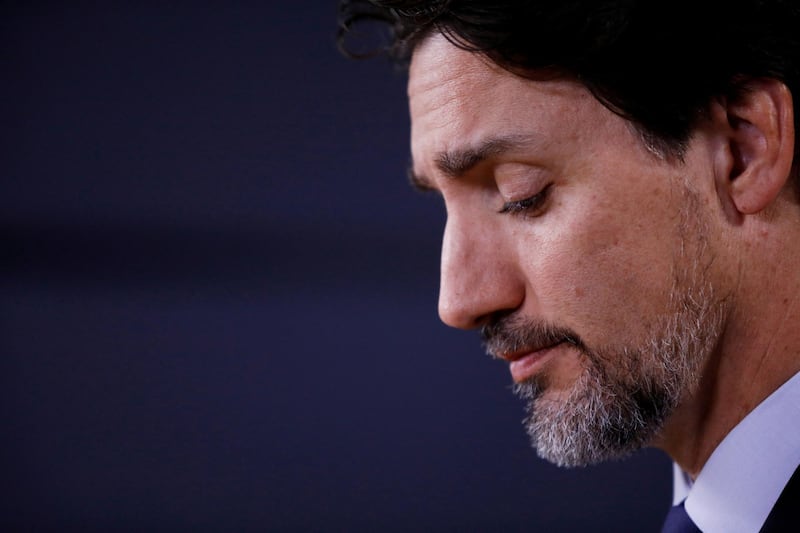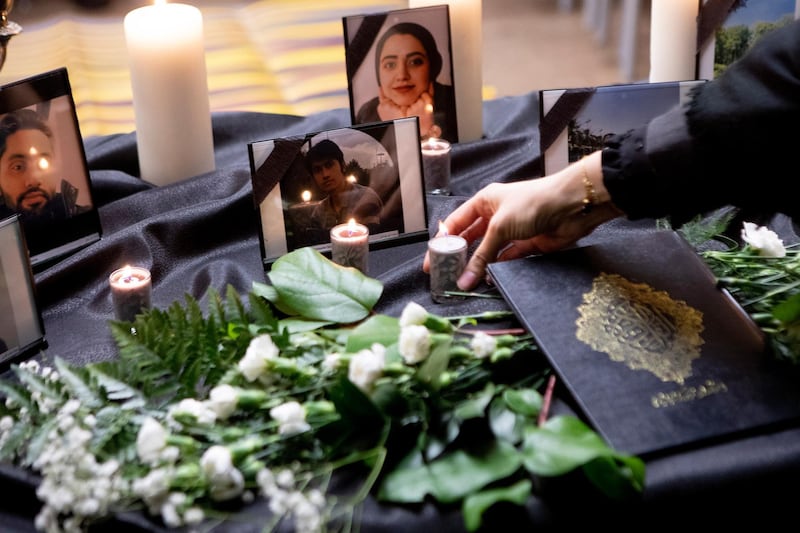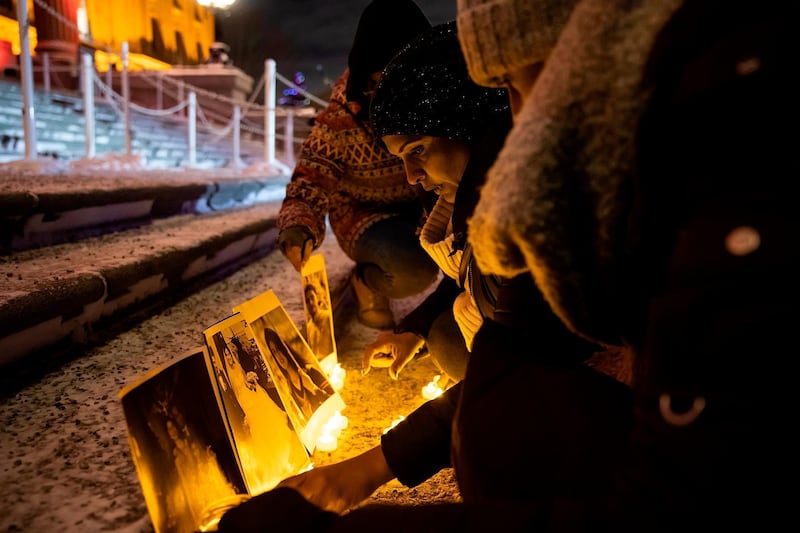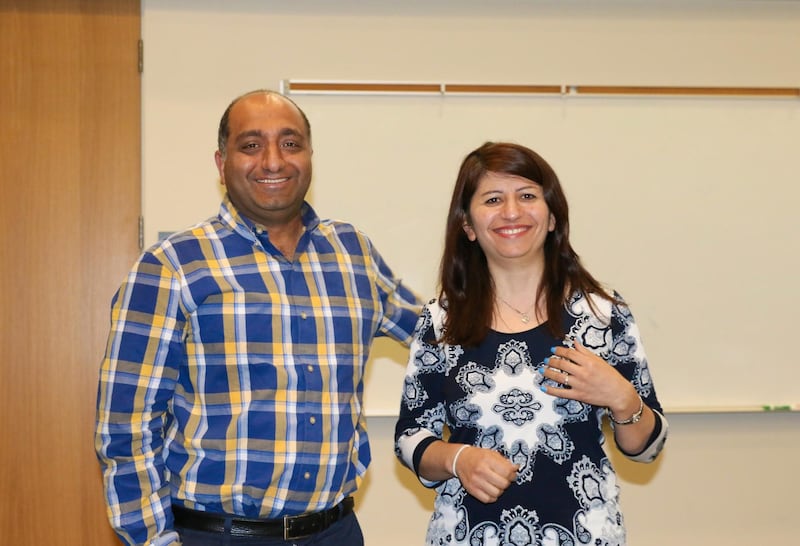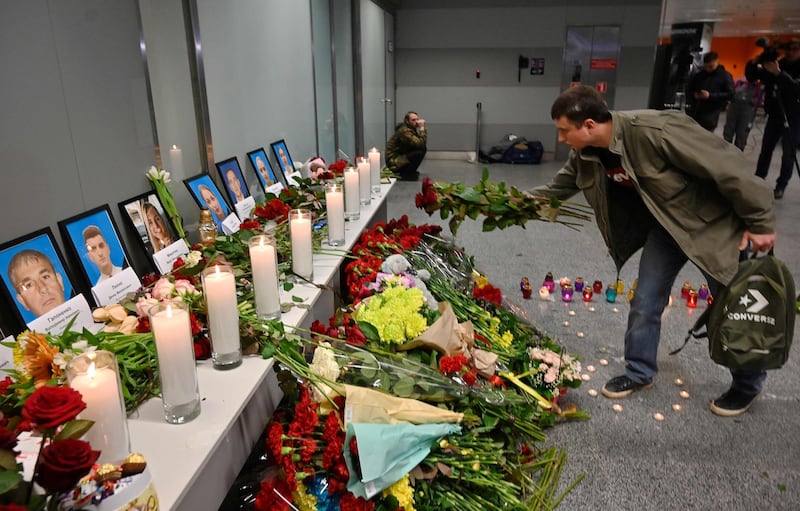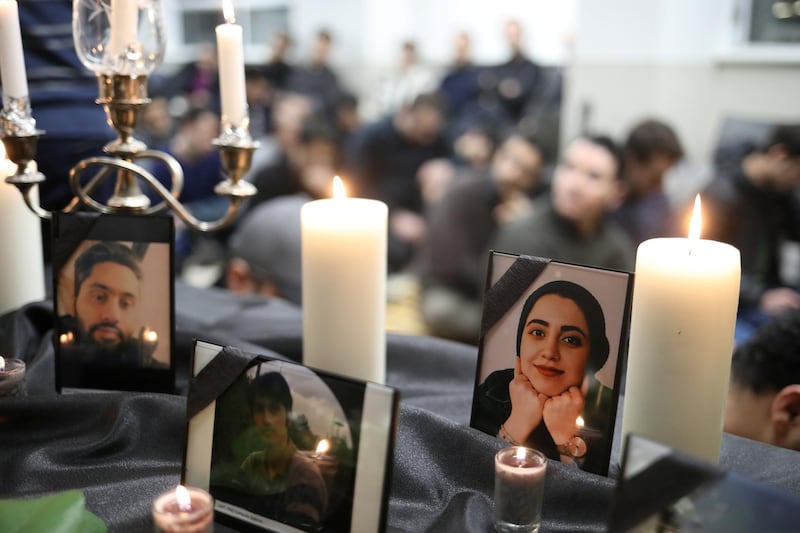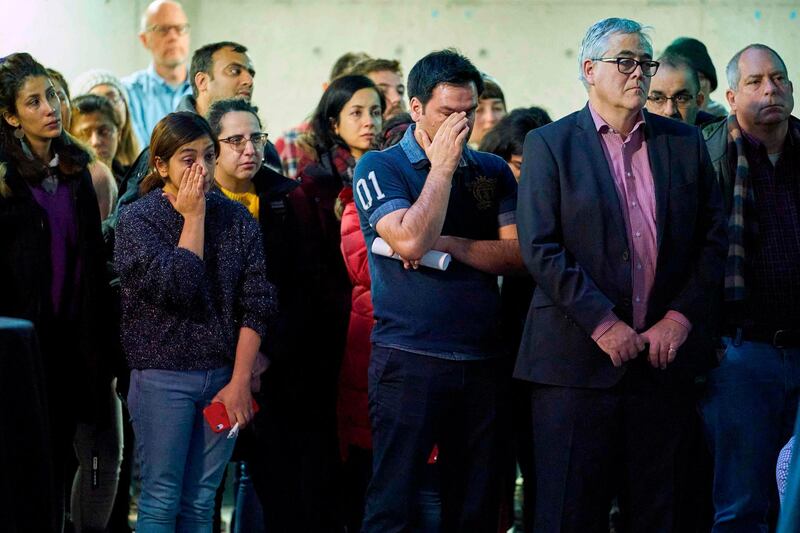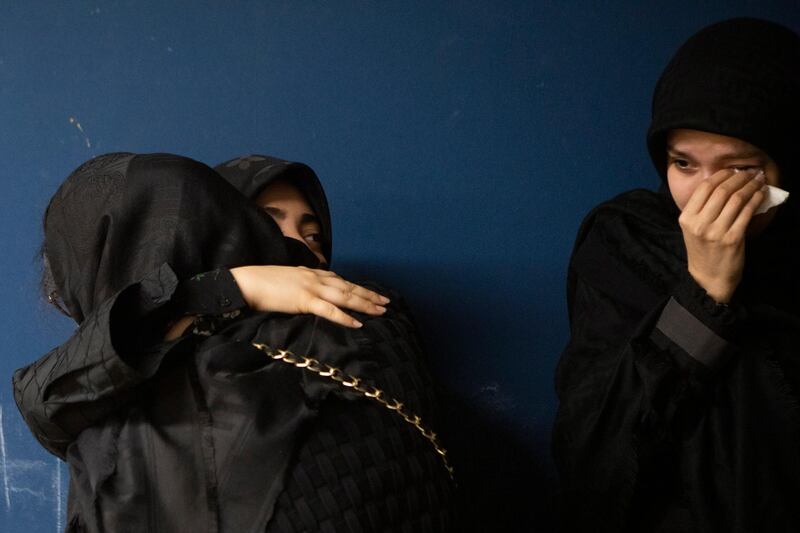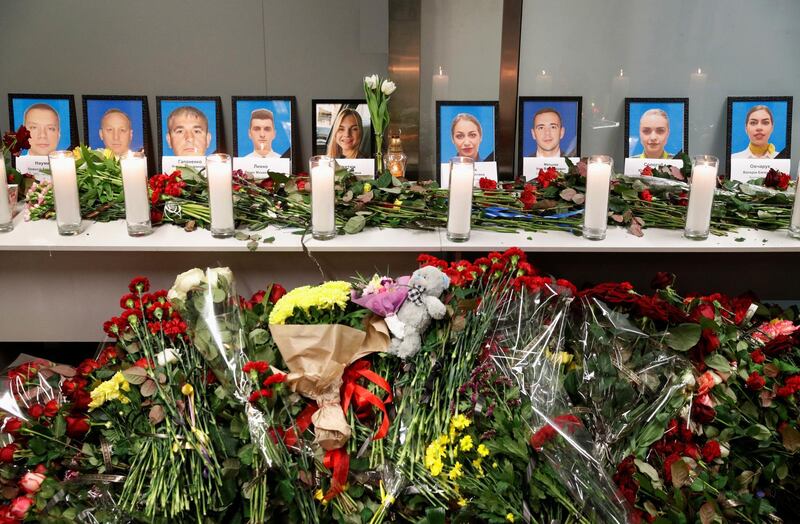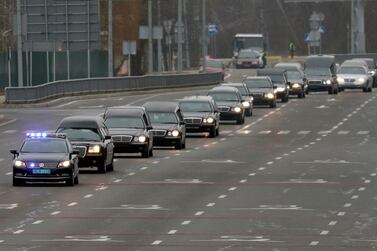Iran has begun repatriating remains of Canadian victims who were killed when its military shot down a civilian airliner amid a confrontation with the US earlier this month.
Canada's foreign minister announced the return of the first crash victim on Tuesday. Further repatriations will follow after days of round-the-clock efforts to identify the remains of the passengers, a Canadian official told The National.
“More repatriations are in process,” said the official, who asked not to be identified.
The return of the remains is an important milestone in the aftermath of the shooting down of the Ukrainian International Airlines plane, as families of the victims, many of whom are Canadian citizens or permanent residents, grapple with their loss.
Iran has admitted to accidentally shooting down the aircraft with two missiles on January 8, shortly after it had taken off from Imam Khomeini airport in Tehran. All 176 people on board were killed, including 57 Canadian citizens and 29 permanent residents. Many of the citizens were dual nationals.
The plane was shot down in the hours after the Iranian military fired a salvo of missiles at an Iraqi bases used by American forces, in retaliation to the killing of Qassem Suleimani, the top Iranian general who shaped his country’s regional policy, in an American drone strike. Iranian officials have said their defence systems were on heightened alert and mistook the plane for an enemy missile.
The flight from Tehran to Toronto via Kiev was popular with students and academics travelling between Iran and Canada. Due to sanctions, there are few direct flights from western capitals to Tehran, and other routes through Dubai, Istanbul, Doha and Vienna are much more expensive.
Ottawa severed diplomatic relations with Tehran in 2012 under then-prime minister Stephen Harper. But the Canadian official said Iran had organised visas for officials traveling to the country to assist with the crash investigation and the repatriation of victims.
“[The] priority is getting Canadians the remains of their family so they can bury [them]” the official said, as well as conducting a “robust” investigation.
Iranian officials initially said the black boxes from the plane would be sent abroad for analysis, but then said this had not yet been decided. Although Iran admitted to shooting down the plane after three days of blanket denials, officials may be worried that dramatic details of the crew and passengers’ last moments between the two missile strikes could inflame anger at Tehran’s handling of the crisis.
The government’s admission sparked a wave of protests by Iranians against what many saw as a callous disregard for their lives.
Iran has repatriated the remains of 11 Ukrainian citizens, most of whom were flight crew. But the return of the Canadians is complicated by the fact that many are of Iranian origin, and Tehran does not recognize dual citizenship. That could mean that the wishes of family members in Iran trump those in Canada.
Once the repatriations are complete, Ottawa will likely seek some form of compensation from Iran for the victims. Prime Minister Justin Trudeau announced shortly after the crash that Canada would provide emergency relief funds to the families, but that it expected Iran to pay within weeks.
It is unclear whether the episode will prompt Mr Trudeau’s government to reconsider the severing of diplomatic relations, which has complicated efforts to provide consular services to victims’ families.
Canada’s Foreign Minister Francois-Phillippe Champagne discussed the crisis with his Iranian counterpart Mohammad Javad Zarif during a rare meeting in Oman last Friday.
